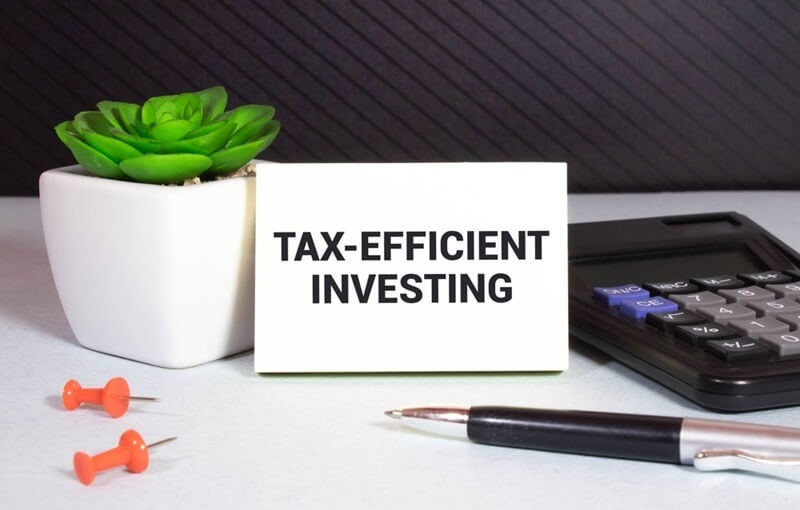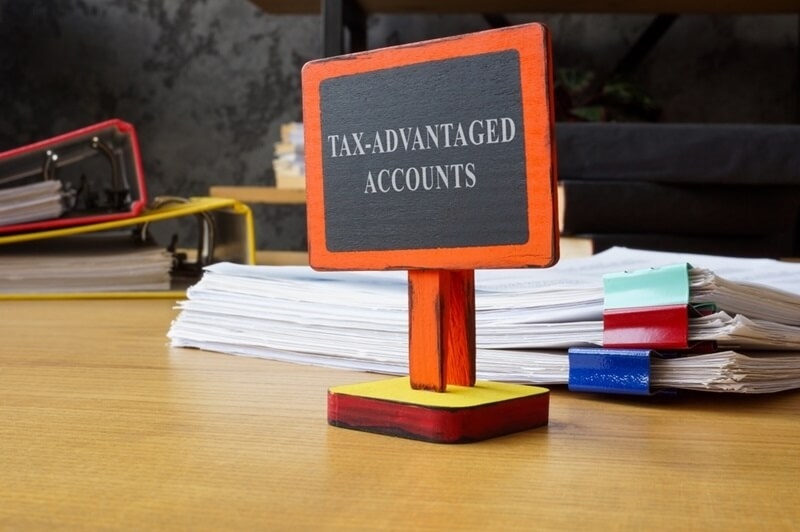
Tax-Efficient Investing Strategies to Retain More of Your Gains
Where building wealth is involved, most investors focus a great deal on choosing the right stocks, funds, or property. What most typically falls short, however, is realizing how much of that hard-earned sweat equity return is dissipated through taxes. That's where tax efficient investing strategies come in. It enables you to keep more of what you've worked for—legally and sensibly—by structuring your investments so that you pay less in taxes.
Along the way, we will make the most important tax-smart portfolio tips come alive, show you how to apply long-term capital gains strategies, and uncover retirement account tax savings so that you can grow richer in the years to come. Let’s explore minimizing taxes on investments, tax-smart portfolio tips, long-term capital gains strategy, retirement account tax benefits, and more.
Every time you sell something, earn a dividend, or earn interest, the IRS is coming after its portion. Taxes are unavoidable, but investment taxes are avoidable and strongly recommended.
Suppose that you earn 10% each year, but contribute 2% to taxes every year. In 20 years, that could be hundreds of thousands of dollars lost. That's why tax efficient investing strategies are not optional—they are mandatory.

One of the easiest things to start doing to reduce investment taxes is to use accounts that are available for tax advantages solely. In America, there are several:
Traditional IRA and 401(k): Contributions are deducted from taxes, reducing taxable income. Investments accumulate tax-deferred until retirement withdrawal, when your income may be reduced. This is a classic retirement account tax benefit.
Roth IRA and Roth 401(k): After-tax dollars are used to make contributions, but all investment profits are tax-free. If you're young or expect to have a higher tax rate in the future, this is an excellent method for saving taxes down the road.
Health Savings Accounts (HSAs): If eligible, HSAs offer the "triple tax advantage": tax-deductible contributions, tax-free income, and tax-free withdrawals for qualified medical expenses.
By placing these accounts first, you're using building-block, tax-efficient investing tactics right from the beginning.
Another great way to reduce your tax burden is by following a long-term capital gains strategy. This is how it's done:
Keeping assets for a longer period is not just healthier for compound growth, it also leaves less of your gains for taxes. It's one of the best tax efficient investing ideas that long-term investors will find.
How you hold your investments can be as valuable as what you're investing in. Asset location is a strategy that's worth its weight in gold when it comes to minimizing investment taxes.
Taxable Accounts
These are typical brokerage accounts. Tax-efficient investments have a home here—things such as:
Tax-Deferred or Tax-Free Accounts
Use IRAs, 401(k)s, and HSAs for tax-inefficient investments such as:
Strategic asset location allows you to create a tax-smart portfolio that compounds more quickly over time.
Tax-loss harvesting is the other essential element of tax efficient investing tactics. It is a strategy for selling losing investments and disposing of winning investments to compensate for, or offset, gains.
Example:
If your losses exceed your gains, you may deduct up to $3,000 against ordinary income and carry over the balance. This tactic is most effectively used in taxable accounts and is a significant tax saving tactic in investments.
Your withdrawal mode in retirement may also be a powerful determinant of tax effective investment strategies. Drastic withdrawals will have you in lower brackets and make your portfolio last longer.
This is how you do it:
This withdrawal order maximizes retirement account tax savings and puts more of your investment returns in your wallet.
Each time a manager or mutual fund sells securities in a fund, it can trigger capital gains taxes even if you yourself didn't sell anything. By purchasing low-turnover funds, such as broad-market ETFs or passively managed index funds, you can avoid paying these unnecessary taxes. This, along with reducing taxable occurrences, is in alignment with a long-term capital gains strategy. Passive investing in general is the secret to many of the current tax efficient investment strategies. It's simple, cheap, and tax efficient.
Dividends are taxable, but how you handle them does make a difference.
If you reinvest automatically, you're increasing your cost basis, so you pay less capital gains when you eventually sell. It's a smart but not widely known approach to minimizing investment taxes.
You can also attempt for qualified dividends, which are taxed at the lower, more favorable long-term capital gain rate, instead of as ordinary income. If you can afford to put the money in, place high-return investments in tax-deferred accounts so you only pay taxes on them yearly.
Tax efficient investing strategy, one of the advanced methods, is gifting or donating long-term appreciated assets.
Two options:
Gift to loved ones: No capital gain tax to you, and your recipient has a lower tax rate.
Donate to charity: You can omit the entire fair market value and ignore capital gains altogether.
This is suitable for estate planning and is well-suited to a considerate, tax-aware portfolio construction.
If your portfolio is much larger or you have multiple types of accounts, a tax-savvy financial advisor can make a measurable impact. They'll take all the above-mentioned tax-efficient investment techniques and tailor them to your specific goals and tax situation.
They can also help coordinate with your accountant to identify additional opportunities for you to save taxes now.
Tax rules shift constantly. What you can do now may not be allowed tomorrow. Stay up to date or consult with an expert during periods of extreme change—such as new rates on capital gains taxes, changes in 401(k) contributions, or IRS regulations.
Flexibility and constant learning are the secrets to lowering taxes paid on investments year after year over a long period of time.
Wealth accumulation has absolutely nothing to do with achieving high returns—it has everything to do with keeping more of them. An intelligent plan with tax efficient investment techniques will eliminate entirely the drag your portfolio suffers at the hands of taxes.
From maximizing tax benefits on retirement accounts to having a good long-term capital gains strategy, each choice counts. And if you combine tax-smart portfolio recommendations with discipline and professional management, your after-tax returns can increase substantially—with no extra risk.
By investing early and making these moves part of your strategy, you're not just investing—you're investing intelligently.
This content was created by AI